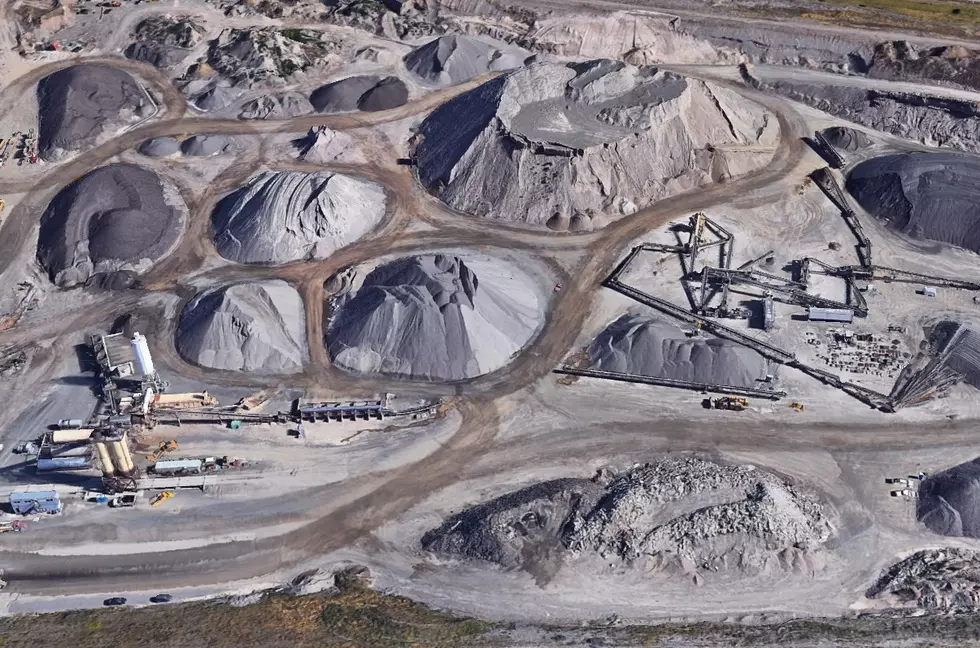
Friends of the Jocko sue state over Arlee gravel pit
Laura Lundquist
(Missoula Current) An Arlee community group is one of the first in Montana to challenge the state’s stripped-down approval of gravel pits in court.
Last week, Friends of the Jocko and Jim Coefield filed a legal complaint in Lake County District Court against the Montana Department of Environmental Quality claiming the department isn’t following state law when it reviews applications for new gravel pits. Friends of the Jocko specifically challenges the department’s environmental review of the Marvin Rehbein gravel pit near Arlee and ask that the permit granted on April 3 be voided. Ferguson & Coppes of Missoula is representing Coefield and the Friends.
"This case revolves around the degradation of the DEQ's willingness to uphold citizens' rights to a clean and healthful environment and public process. From the very beginning of the DEQ's handling of Riverside Contracting's permit, it was apparent that the agency had fallen victim to the Governor’s and Legislature's 'red tape' initiative. Which is to say that the goal was to cut the public out of the process and alleviate the agency's ability to adequately protect citizen rights and the environment” the Friends said in a statement.
The complaint says the DEQ’s environmental assessment failed to follow the Montana Environmental Policy Act in several instances, which could ultimately rob Montanans, especially the 29 homeowners that live within a half-mile of the 157-acre pit, of their Constitutional right to a clean and healthful environment.
In particular, the Friends say the DEQ failed to take a “hard look” at how a gravel pit could affect several aspects of the environment, including groundwater, surface water, air quality and local aesthetics. The “hard look” doctrine requires that before an agency approves an action, it has adequately considered and disclosed the environmental impacts. Otherwise, the decision is arbitrary or capricious.
In addition, the DEQ never consulted with the U.S. Fish and Wildlife Service or the Confederated Salish and Kootenai Tribes about water or wildlife, even though the gravel pit is on the Flathead Reservation.
For gravel pits, many of the measurements included in an application are made by the applicant, not DEQ.
When it comes to effects on groundwater, the Friends say the mining could pollute or reduce artesian groundwater that exists above the level of the aquifer that was reported in the application, especially because a historical stream, Pellew Creek, once flowed through the site. DEQ didn’t look at that.
Also water will be needed for pit operations but DEQ never identified the source and didn’t analyze how potential runoff - which DEQ acknowledged could occur - would affect the Jocko River and its aquatic life.
Because of a law passed by the 2021 Legislature that eliminated some environmental protections, there are no limits on hours of operation or light pollution. The complaint says that mining machinery and the asphalt plant will contribute harmful particulate matter and other pollutants to the air. The plant could potentially operate around the clock, but DEQ didn’t calculate the amount of pollution that could accumulate over a 24-hour period, saying instead that pollution would be “short-term” and “negligible.”
DEQ’s environmental assessment went on to say that aesthetic effects of light and noise on the neighbors would be “moderate,” a definition that the Friends question. DEQ also says the effect would be temporary but the permit allows the pit and plant to operate for 25 years. The Friends said this would reduce the value of properties near the pit, which would affect the local property tax base.
“The noise pollution will be permanent for the life of the project and thus the remainder of many individuals’ lifetime,” the complaint said.
Finally, the Friends of the Jocko appear to have found evidence that the DEQ misrepresented how the pit would affect the distribution of human population and housing. They acquired emails showing that DEQ staff knew that the pit owner, Riverside Contracting, allows its workers to camp on its gravel pit properties. But DEQ didn’t analyze the effect of additional people living on site.
In one of the emails, DEQ Section Supervisor Whitney Bausch writes that the camping allowance should probably be included in the environmental assessment, then says “I don’t know if we want to disclose this.”
The complaint concludes by saying that parts of the environmental analysis are merely handwaving by the DEQ. Many impacts to the area are either not fleshed out or not described at all, and the DEQ makes many subjective statements - “impacts are not anticipated” - without providing detailed analysis or, in some cases, any analysis.
“We expect that DEQ and other state agencies will continue to erode citizens' rights to a clean and healthful environment, public process and individual dignity as they allow egregious industrial developments like this to move forward unimpeded. This lawsuit aims to redirect DEQ towards a more balanced and lawful approach that would come to a different decision regarding the Rehbein asphalt plant and gravel pit,” the Friends said in a statement.
DEQ Public Policy Director Rebecca Harbage said the department's policy is not to comment on current litigation.
Contact reporter Laura Lundquist at lundquist@missoulacurrent.com.
